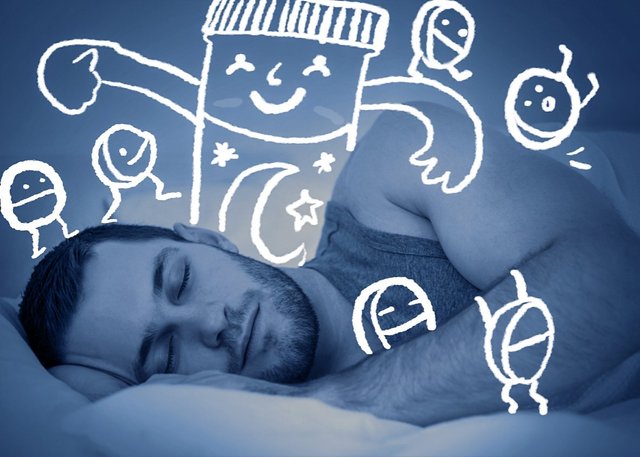DREAM SCIENTIFICALLY EXPLAINED
A day ago I had a dream that baffled me and I wanted to understand it and everything concerning dream.So, I opened my browser and decided to do some research online through google. This piece is like a summary of what I found out about Dream scientifically.
WHAT IS DREAM?
According to wikipedia: Dream is a succession of images, ideas, emotions, and sensations that usually occur involuntarily in the mind during certain stages of sleep.
The concept of Dream which is also called REM(Rapid Eye Movement) SLEEP still baffles most scientist and the question of how and why we dream is still very much at large unanswered. The scientific world is divided on the issue because some sect of scientist believe the concept is set of random, unrelated information to help the brain release the stress of a day's event. Some believe it can be used to predict the future because they are symbolic while Others believe it helps process all the information acquired throughout the day.
Several years ago,it was discovered by scientists that; there is a number of basic patterns in dream content, that provides a reasonably understanding of the meaningful features of dreaming experience.
Science seems to understand some things which are listed below:
- David Foulkes and other scientists in their research noticed that dreams usually include fairly realistic portrayals of familiar people, places, and activities.
- Most parts of dream content are accurate, honest reflections of people’s emotions in waking life. The content of your dreams are most likely going to be of things you care about in your waking life.
- Deirdre Barrett says in her 1996 edited book Trauma and Dreams: “[A]s time passes, and especially for those whose PTSD is gradually improving, the dream content begins to make the trauma more symbolic and to interweave it with concerns from the dreamer’s daily life.” (p. 3). Nightmares suffered by victims of post-traumatic stress disorder (PTSD) frequently change, during the period of healing, to more ordinary nightmares with a more diffuse range of imagery.
Some researchers have tried to measure dream but to no avail because there is yet to be a tool to carry out the job though there are considerable number of instrument to measure brain wave that are active when someone is asleep but the dream cant be accounted for. Due to this researchers have to depend on the account of the dream given by the dreamer and this is often not accurate because the thoughts of what happened while you were sleeping, imprecise upon waking.
Sometimes it can be difficult to distinguish the event that happened during the dream and the one that occurred in the waking hours.
After I all the googling , I realised most of my dreams are basically,bits by bits of different events that happened or somethings i think about before I go to bed.
So stemians what do you think of dream and what are the things you often dream of,if you don't mind sharing. Lets hear you view.
